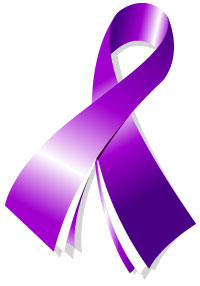Three in 10 women, one in 10 men experience violence


Those in abusive situations often stay in the relationship — not because they don’t want to leave, but because they feel they can’t, said one OCCC employee who said she experienced domestic violence as a young woman.
“A lot of women stay because they have nowhere to go, they’re afraid to leave or the man won’t let them leave with their child,” said the woman who will be identified as Ally for this report.
“Those are all reasons why women stay — especially fear of losing their child.”
In the U.S., nearly three in 10 women and one in 10 men have experienced physical violence, rape or stalking by an intimate partner, according to the National Domestic Violence Hotline’s website found at www.thehotline.org.
October is Domestic Violence Awareness Month. Victims of domestic violence can be anyone — even professors lecturing in classrooms or students hastily copying class notes.
One OCCC student who asked to remain anonymous said he was forced to withdraw this semester after a leg injury caused by his boyfriend.
“I had to drop all my classes for the semester because I was in the hospital for two months … ,” he said.
“It’s not just women who get abused in relationships.
“Men get abused as well, and it was hard for me to be honest with that because it felt embarrassing [to admit I’d been abused].”
Ally said if there are children involved, the most important consideration is the child’s safety.
“One of the main things is to protect yourself and your children,” she said.
“Sometimes it’s best to file a Victim Protection Order with the police. Even if it’s the child’s father, it may be the best thing to do for protection.”
There are several types of domestic violence — including mental, physical, emotional, verbal and financial abuse, Ally said.
“Sometimes people aren’t aware of those other things,” she said. “They think it’s just physical abuse.
“[People] need to know if someone is cursing at you or playing mind games with you — those are signs of abuse.
“A lot of times there’s manipulation involved,” she said. “Calling someone names, belittling them [with verbal abuse] — it can affect someone’s self-esteem and self-worth.
“When you’re talked down to and made to feel [inferior], you start to believe those things.”
Ally said her experiences have enabled her to help others in similar situations.
There are resources available for those currently experiencing abusive relationships as well as those who’ve experience domestic violence before, she said.
One resource is Oklahoma City’s YWCA — a local organization derived from the national Young Women’s Christian Association — located at 2460 W I-44 Service Road in Oklahoma City.
Oklahoma City’s YWCA is open to everyone in need, said YWCA Outreach Education and Volunteer Services Director Madeline Whitehorn.
“We’re a non-faith based organization — we’re open to all faiths,” Whitehorn said.
“Any socio-economic status, any sexual orientation, men, women, children — if somebody needs help, they can come to us.”
Whitehorn said Oklahoma City’s YWCA maintains a crisis shelter for women currently living in abusive situations.
“The shelters house up to 55 women and children,” Whitehorn said.
“If there is a man seeking shelter, we have motel rooms across the city and they receive the same services as our shelter clients.
“We also work with victims in the community.”
Along with shelter, Whitehorn said, the YWCA provides each client with a counselor for emotional support and an advocate to help them get back their confidence.
“The counselors, of course, provide counseling — but advocates help clients with empowerment plans,” Whitehorn said.
“Since domestic violence is all about power and control, we want to give the power back to the victim who’s experienced an abusive relationship. That’s what the advocates do.”
Additionally, Whitehorn said, the YWCA has an office that operates out of the Oklahoma City Police Department that helps file Victim Protection Orders.
In order to receive YWCA services, Whitehorn said, victims or law enforcement must first call the crisis hotline at 405-917-9122 to request help.
“Once we’re contacted, we do a lethality assessment — and if they meet certain criteria that indicates their life is imminent danger, then they are brought to our shelter.”
The OCCC employee, who has since overcome her past experiences with abuse, said services like the YWCA are extremely helpful for those in need.
“I would recommend anyone who’s gone through domestic violence or is currently going through it seek counseling,” she said.
“Those things can affect you later on in life — your job, your relationships with your loved ones.
“Sometimes, when someone has been in an abusive situation, they have to be careful that they don’t become abusive themselves.”
For more information about the YWCA, visit www.ywcaokc.org or call 405-948-1770.
For the YWCA Crisis Hotline, call 405-971-9122.
For additional domestic violence resources, visit http://ocadvsa.org/get-help/